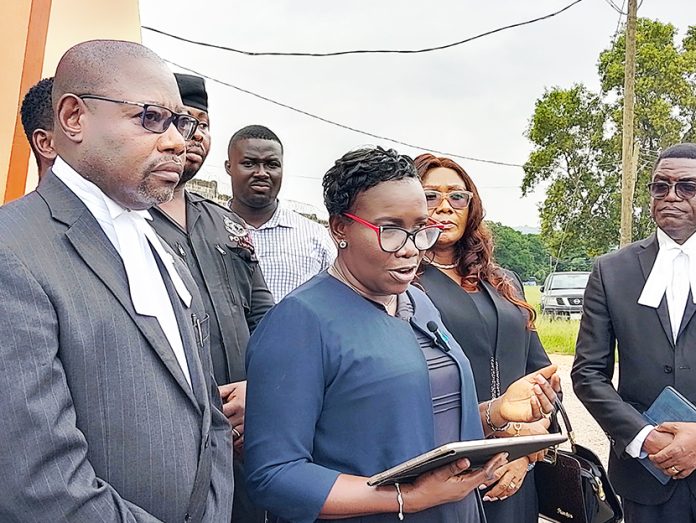Justice Afia Serwah Asare-Botwe, a distinguished Court of Appeal judge, has raised significant concerns over the prolonged delays in Ghana’s judicial system, attributing them partly to the country’s ambiguous definition of reasonable time in law.
Speaking at the Justice for All programme (JFAP) organised by the Judicial Service and POS Foundation, Justice Asare-Botwe noted how these delays contribute to overcrowding in prisons, particularly with pretrial detainees.
The overcrowding issue has strained Ghana’s prison capacity, pushing the number of inmates from 10,265 to 14,647.
Of these 13,057 are convicts whilst 1,590 are awaiting trial.
Justice Asare-Botwe emphasised that expedited trials significantly reduce the time individuals spend in pretrial detention, which is crucial, given that many cannot meet bail conditions and languish in prison, awaiting their day in court.
Recent data presented by Justice Asare-Botwe indicates a notable reduction in prison overcrowding, dropping from 51% in December 2018 to 42.69% by May 2024.
Moreover, the proportion of inmates in pretrial detention has decreased from 33% in 2007 to 10.86% in 2024 underscoring the positive impact of initiatives like JFAP.
“Therefore, beyond reduction in the remand population through grant of bail, stakeholders in the criminal justice delivery system must also focus on expeditious trials, which aim to reduce the time between arrest and final adjudication. Swift trials helps ensure that justice is served in a timely manner,” she added.
During the recent JFAP session, 24 remand prisoners applied for the programme, resulting in 12 discharges, 10 granted bail and 2 denied bail.
The cases ranged from serious offenses like murder to others involving unlawful acts and traffic violations.
Justice Asare-Botwe stressed the critical need for swift trials to ensure justice is served promptly and effectively.
She highlighted that delayed trials can lead to faded memories, lost evidence, and other impediments to fair adjudication, all of which were evident in the proceedings observed during the JFAP court sessions.
In addressing the systemic challenges, Chief Justice Gertrude Torkornoo has initiated the Judiciary Criminal Justice Committee. This committee aims to identify and propose solutions to the issues plaguing Ghana’s criminal justice system, including delays exacerbated by the lack of legal representation and procedural inefficiencies.
One poignant case discussed was that of a 75-year-old man from Kwasikrom, Asamankese, who has been on remand since 2018 without trial, awaiting the Attorney-General’s advice.
Such cases underscore the urgency for reforms to ensure timely access to justice for all individuals involved in the legal system.
The efforts of Justice Afia Serwah Asare-Botwe and other judicial leaders underscore a proactive approach towards addressing the root causes of prison overcrowding and justice delays, aiming for a more equitable and effective legal framework in Ghana.








